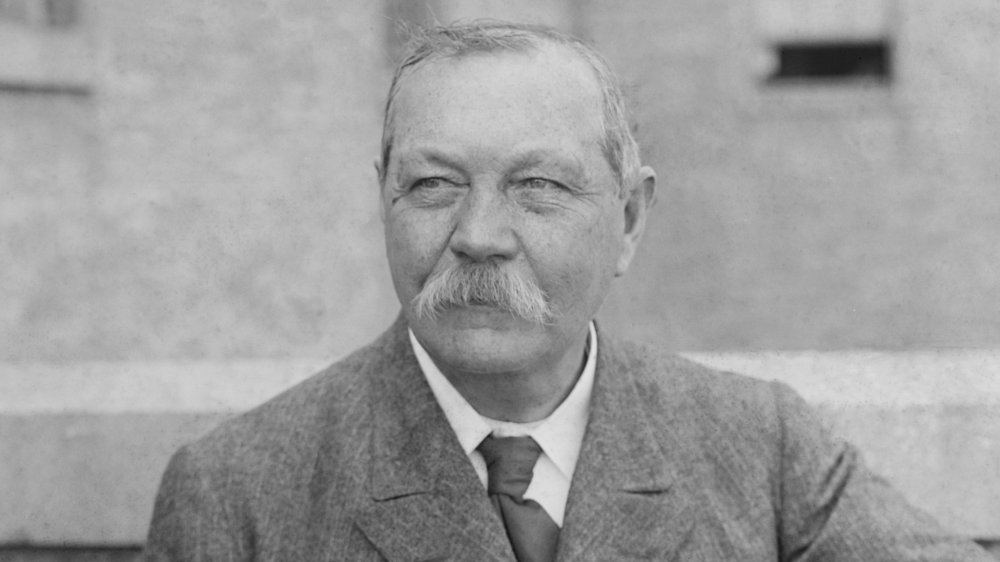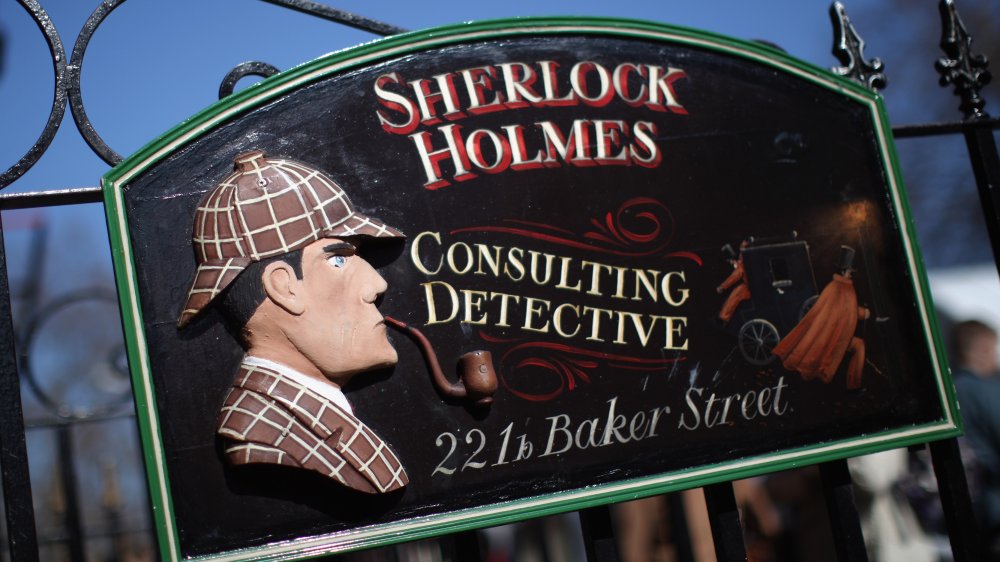Why Did Doyle Kill Off, And Bring Back, Sherlock Holmes?
Sherlock Holmes has become one of history's greatest detectives. He lives on, not just in Arthur Conan Doyle's original four novels and 56 short stories, but in movies, TV shows, and plays. In just the last 10 years there have been at least four actors who played Holmes in film and TV. Who did it best? Benedict Cumberbatch, Robert Downey Jr., Jonny Lee Miller, or the most recent inductee, Henry Cavill? Holmes mania is not a 21st-century thing. It was the reason why Doyle made — and then reversed — his most controversial decision. Doyle killed his most famous literary creation. And then brought him back.
Doyle was a financially unsuccessful physician and author when he wrote the first Holmes story in 1887, according to Doyle's official website. The novel, titled A Study in Scarlet, was published in Beeton's Christmas Annual. Doyle based his detective on a teenage hero of his, Dr. Joseph Bell, who himself was as fascinating as his fictional counterpart. The first adventure proved popular, and Doyle was commissioned to write a sequel, the novel that became The Sign of Four. He then wrote Holmes short stories, published in The Strand Magazine.
Despite creating a money-making character, Doyle didn't really like Holmes. The Los Angeles Times said Doyle told his mother that Holmes "takes his mind off better things." Before publishing the Holmes stories, Doyle had difficulty finding a publisher for his works. But now that he was writing a well-read series, he tired of it.
The not exactly hard choice to kill him off
Doyle chose to kill off his fictional consulting detective in 1893's "The Final Problem," with little fanfare. In it, Holmes battles his archnemesis, Professor James Moriarty. In the ensuing fight, both men tumble off the Reichenbach Falls, seemingly to their death. The BBC reports that on the day it was published, Doyle wrote in his journal, "Killed Holmes." Later, he would say he "had such an overdose of him" that he felt sick every time he had to write another Holmes piece. Oh, if only Doyle could see how overexposed Holmes is now. Doyle honestly thought he could kill off history's greatest detective because he got bored, and other people would be like, yeah, that's cool, what's next for you, pal?
Doyle gravely misjudged his creation's popularity. Readers sent him letters cursing his decision (a woman called him a brute for killing Holmes), men and women wore mourning clothes, and the owner of Strand Magazine, which published "The Final Problem," had to assure shareholders that while Holmes's death was devastating, the magazine should bounce back. More than 20,000 subscribers canceled their Strand subscriptions.
Such public reaction had never been seen before, explained the BBC. It'll be years before Star Trek fans would go to great lengths to save their show, after all. In fact, it was Sherlock Holmes that created "fandom" as we know it today. And despite the extreme public reaction, Doyle refused to write another Holmes novel.
Sherlock Holmes will just never die
The public outcry finally drove Doyle to write the novel The Hound of the Baskervilles in 1901, though he maintained it was because he wanted to write a story about the legend of a hound in the moors. He also explained to fans that the book didn't mean Holmes was back; rather, it was meant to be an older story in his timeline. Two years later, American and British publishers finally convinced Doyle to return to Holmes and make an obscene amount of money. Doyle explained Holmes survived falling off waterfalls because of his knowledge of a Japanese wrestling style. He never addressed the fact that Holmes's best friend and sidekick, Watson, mourned for three years (in the Holmes stories, he was only gone for three years) and said he'd been spending time in the Far East.
It didn't seem that reviving Holmes meant Doyle was suddenly excited to write him again. The later stories were far more inconsistent than their predecessors. But Doyle knew there was no way he could kill off his most famous character again. Holmes, Watson, and the rest of the supporting characters are forever alive in the minds of fans.
While it seems that Sherlock Holmes mania is new, thanks to the obsessive way people talked about the BBC's Sherlock, in reality, Sherlock Holmes might well represent the first time a creator realized he had zero control over the thing he created.


